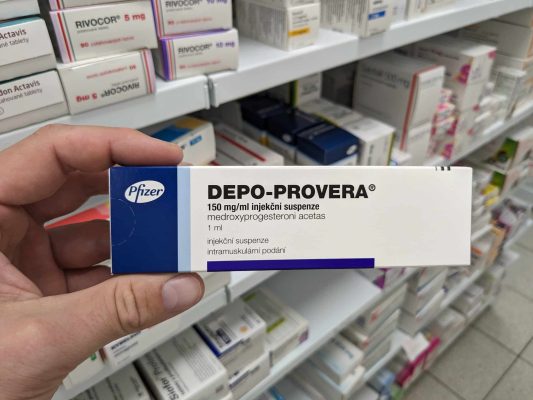Investigating Depo-Provera and the Risk of Brain Tumors
Are you or someone you love experiencing symptoms of a brain tumor after using Depo-Provera? If so, you may not be alone. ASK LLP is actively investigating claims related to Depo-Provera’s link to meningioma—a tumor that forms in the membranes around the brain and spinal cord.

What is Depo-Provera?
Depo-Provera is a long-acting contraceptive injection administered every three months. In fact, its active ingredient, depot-medroxyprogesterone acetate, was developed by Pfizer and approved by the FDA in 1992.

Alarming Findings: Depo-Provera Linked to Meningioma
In March 2024, a study published in the British Medical Journal confirmed a significant association between Depo-Provera and meningioma. Researchers found that women who used Depo-Provera were over five times more likely to develop meningioma compared to those who never used it.
What Is Meningioma?
Meningiomas are usually slow-growing tumors and may exist in the brain for many years without symptoms before being diagnosed. Meningiomas are categorized into three different grades:
- Grade I: A totally non-cancerous meningioma that grows very slowly, accounting for approximately 80% of meningioma cases.
- Grade II: Non-cancerous but more rapidly growing, making treatment more difficult. They are more likely to return following removal than Grade I cases.
- Grade III: Malignant (cancerous) tumors that grow fast and aggressively, comprising less than 2% of cases.
Symptoms to Watch For
According to the Mayo Clinic, symptoms of meningioma may develop gradually and often vary by tumor location. Common symptoms include:
- Blurred or double vision
- Morning headaches
- Ringing in the ears or hearing loss
- Memory issues
- Seizures
- Trouble speaking
- Weakness in limbs
- Loss of smell
Early diagnosis is key. Doctors may use CT scans, MRIs, and biopsies to confirm a meningioma diagnosis.
How Are Meningiomas Treated?
Meningiomas often depends on the size and grade of the tumor. As a result, treatment options may include:
- Surgical removal
- Radiation therapy
- Chemotherapy
Each approach carries its own risks and potential side effects.
Can You File a Depo-Provera Lawsuit?
If you developed a meningioma after using Depo-Provera for more than a year, you may qualify for legal action. ASK LLP can help you seek compensation for:
- Medical expenses (past and future)
- Pain and suffering
- Emotional distress
- Loss of enjoyment of life
- Punitive damages (if applicable)
Learn More:
To dive deeper into the topic, check out this links: Mayo Clinic Guide to Meningiomas
Why Choose ASK LLP?
ASK LLP brings over 30 years of combined experience in complex litigation. Moreover, our team handles each case with care, commitment, and a relentless pursuit of justice. We’ve helped thousands of individuals across the country hold large corporations accountable.
📞 Call us at (877) RING ASK or visit our Contact Page for a free case evaluation.
















